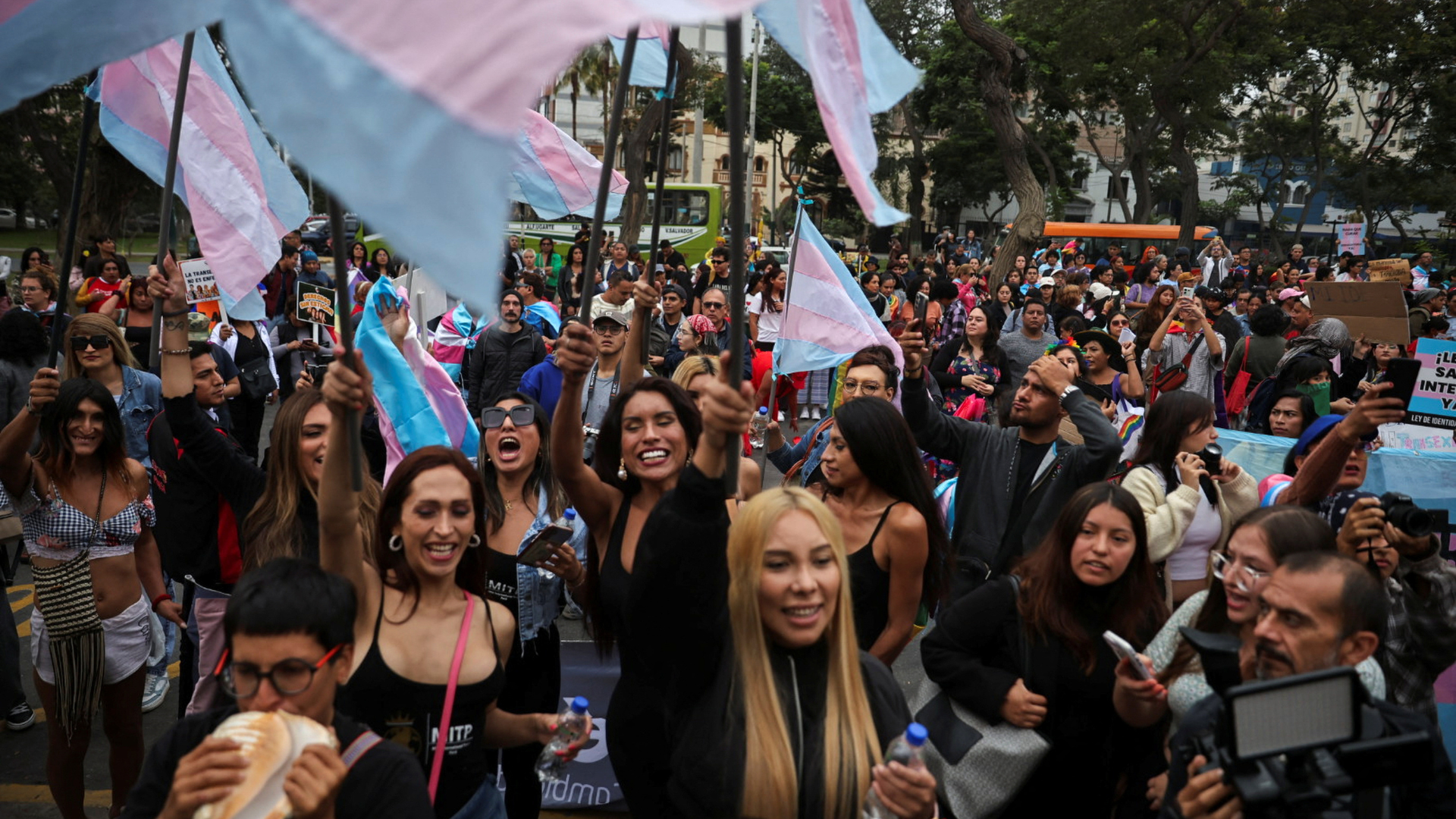The LGBTQ community in Peru has staged protest in the capital city Lima, last week. After the Country’s Health ministry issued a new law that deemed transgender people as having “mental health problems”.
On May 10, a supreme decree signed by Peruvian President Dina Boluarte was published, updating the Ministry of Health’s list of insurable mental health conditions to include “transsexualism,” “gender identity disorders,” and “cross-dressing.”
Story Background
In 2019, the World Health Organization redefined its classification of gender identity-related health issues, moving conditions like “gender incongruence” from the “mental and behavioral disorders” category to “conditions related to sexual health.” The updated guidance states, “This reflects current knowledge that trans-related and gender diverse identities are not conditions of mental ill-health, and that classifying them as such can cause enormous stigma.”
On May 11, the Peruvian Health Ministry released a statement emphasizing that the update aims to ensure comprehensive mental health interventions. “The ministry ratifies its position that gender and sexual diversity are not diseases,” it stated. “In this framework, we express our respect for gender identities, as well as our rejection of the stigmatization of sexual diversity in the country.”
Despite this clarification, the ministry affirmed that the update to the country’s Essential Health Insurance Plan will remain in force.
Following the statement, over 60 national LGBTQ organizations staged a protest on Friday in front of the ministry’s headquarters in Lima. The protest coincided with the International Day Against Homophobia, Transphobia, and Biphobia, celebrated annually on May 17.
In a joint statement, the organizations condemned the decree, arguing that it perpetuates “an archaic vision” that makes transgender individuals targets of aggression.
The recent decree represents a significant regression in terms of our rights and the acknowledgment of our dignity as individuals. This measure not only reveals a lack of understanding and respect for sexual and gender diversity but also has dire repercussions on our lives.
Transformar, a trans-feminist organization based in Peru, called on the ministry to reevaluate the decree and “implement measures that uphold and promote inclusive public policies.”
“This is more than just a setback in human rights and recognition of diversity; it also paves the way for harmful practices like conversion therapies,” stated Collective Pride March, another Lima-based rights group. “Gender identity is not a disease; it is an inherent part of human diversity that deserves respect and protection.”
In its statement, the Health Ministry emphasized that sexual orientation and gender identity are not health disorders and that individuals should not undergo treatments such as conversion therapy.
U.S. Representative Robert Garcia, D-Calif., announced on Wednesday that he would collaborate directly with the State Department to “counter this direct attack on LGBTQ+ Peruvians,” arguing that the measure “regresses Peru’s progress.”
“As a gay Peruvian-American and the first Peruvian American to serve in Congress, I find the Boluarte administration and the right-wing Congress’s decision to label trans and intersex Peruvians as ‘mentally ill’ to be discriminatory, dangerous, and disgraceful,” he said.
In the United States, the American Psychiatric Association has referred to “gender dysphoria” in its Diagnostic and Statistical Manual of Mental Disorders since 2013, replacing “gender identity disorder.” This change focuses on the distress associated with transgender individuals’ experiences rather than on their identities themselves.























